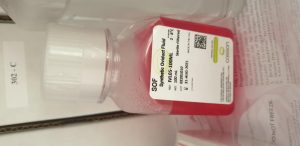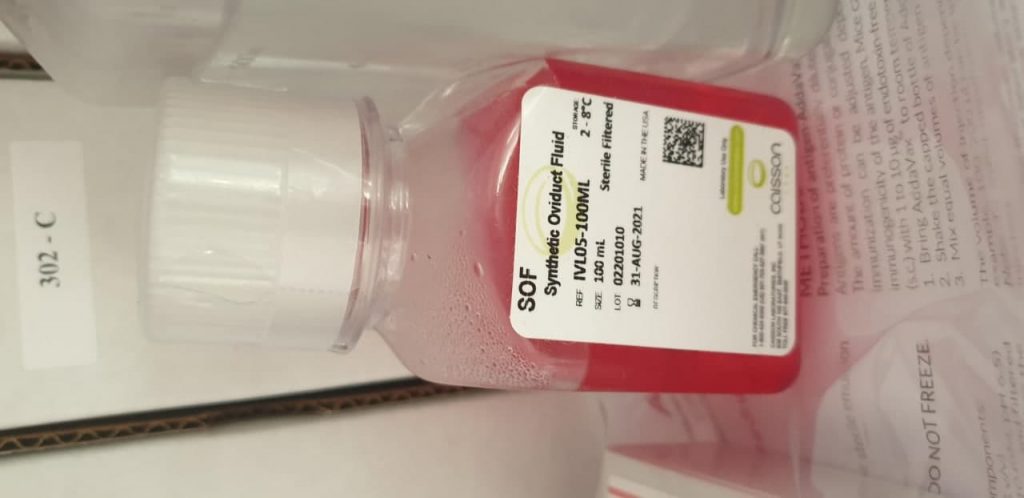Major depressive dysfunction (MDD) is a persistent affective dysfunction that has a powerful neuroinflammatory element underpinning its etiology. Recent research point out that MDD can also be related to adjustments in the intestine microbiota and that the latter is especially modulated by food regimen.
Microbiota-based customized diet goals to supply an individual-specific food regimen that can yield the most profit from a given food regimen since the intestine microbiota is accounted for the variations that people current in response to a given meals. In this overview, we current and focus on 5 doable outcomes of utilizing microbiota-based customized diet. Harnessing this method is important to design extra correct therapies to forestall and deal with MDD or to even assist in drug metabolism, particularly in the case of antidepressants.
What fisher diets reveal about fish shares
Tracking fish consumption might present extra data on adjustments to fish shares, certainly one of the planet’s important protein sources. We used knowledge on seafood consumption in fishing villages in Brazil over time to check for adjustments in: species richness, range, and composition, fish dimension and trophic ranges, consumption of endangered species, and purposeful range (particularly, species with completely different behavioral and habitat preferences).
Our outcomes reveal the potential to incorporate this extra knowledge supply to enhance fisheries knowledge, particularly in data-poor nations. With respect to Brazil particularly, we recognized a lower in each the common trophic stage and dimension of the species consumed. While the consumption of endangered species had at all times been low, most of those species modified over time, thereby suggesting that many, particularly elasmobranchs, might have change into uncommon on the plates.
Although it could be exhausting to totally isolate cultural adjustments from biodiversity adjustments in the case of analyzing consumption knowledge, by inspecting diets it’s doable to determine facets value investigating additional, comparable to, whether or not the lower in dietary trophic ranges mirrors a lower in environmental trophic ranges. In locations the place fisheries knowledge are both inexistent or restricted, food regimen monitor surveys, comparable to family expenditure packages, can assist hint the adjustments attributable to fisheries in shares and habitats.
Chrysin attenuates high-fat-food regimen-induced myocardial oxidative stress through upregulating eNOS and Nrf2 goal genes in rats
Hypercholesterolemia is certainly one of the threat elements related to elevated morbidity and mortality in cardiovascular problems. Chrysin (Chy) is reported to exhibit anti-inflammatory, anti-cancerous, anti-oxidative, anti-aging, and anti-atherogenic properties. In the current research, we aimed to analyze whether or not Chy would mediate the cardioprotective impact towards hypercholesterolemia-triggered myocardial oxidative stress.
Male Sprague Dawley rats have been divided into completely different teams as management and fed with high-fat food regimen (HFD) adopted by oral administration of Chy (100 mg/kg b.wt), atorvastatin (Atv) (10 mg/kg b.wt), and L-NAME (10 mg/kg b.wt) for 30 days. At the finish of the experimental interval, the rats have been sacrificed and tissues have been harvested.
Biochemical outcomes confirmed a major improve of cardiac illness marker enzymes (ALT, AST, and CKMB), lipid peroxidation, and lipid profile (TC, TG, LDL, and VLDL) in HFD-fed rat tissues when in comparison with management, whereas oral administration of Chy considerably decreased the actions of those marker enzymes and managed the lipid profile.
qRT-PCR research revealed that Chy administration considerably elevated the expression of endothelial nitric oxide synthase (eNOS), and Nrf2 goal genes comparable to SOD, catalase, and GCL3 in left ventricular coronary heart tissue of HFD-challenged rats. Immunohistochemistry outcomes additionally confirmed that Chy remedy elevated myocardial protein expression of eNOS and Nrf2 in HFD-challenged rats.
Concluding the outcomes of the current research, the Chy might mediate the cardioprotective impact by the activation of eNOS and Nrf2 signaling towards hypercholesterolemia-induced oxidative stress. Thus, the administration of Chy would supply a promising therapeutic technique for the prevention of HFD-induced oxidative stress-mediated myocardial issues.
A gelatinized lipopeptide food regimen successfully modulates immune response, illness resistance and intestine microbiome in Penaeus vannamei challenged with Vibrio parahaemolyticus
Penaeus vannamei is certainly one of the most economically important shrimp globally, however infectious ailments have hampered its correct manufacturing and provide. As antibiotics pose an enormous risk to the setting and humankind, it’s important to hunt another technique to beat an infection and guarantee correct tradition and manufacturing. The current research investigates the impact of an anti-infective biosurfactant spinoff lipopeptide MSA31 produced by a marine bacterium on the development efficiency, illness resistance, and the intestine microbiome of P. vannamei when challenged with pathogenic Vibrio parahaemolyticus SF14.

The shrimp have been fed with a business and lipopeptide formulated food regimen for 60 days and the development efficiency was analyzed. The lipopeptide fed shrimp group confirmed enhanced development efficiency and particular development charge with improved weight achieve than the management group. The problem experiment confirmed that the survival charge was important in the lipopeptide fed group in comparison with the management group.
The outcomes revealed 100% mortality in the management group at the finish of 12 h of problem, whereas 50% of the lipopeptide diet-fed group survived 24 h, which signifies the enhanced illness resistance in shrimp fed with a lipopeptide food regimen. The take a look at group additionally confirmed increased ranges of digestive and immune enzymes, which means that the lipopeptide food regimen might positively modulate the digestive and immune exercise of the shrimp.
The intestine microbiome profiling by Illumina high-throughput sequencing revealed that the most considerable genera in the lipopeptide diet-fed group have been Adhaeribacter, Acidothermus, Brevibacillus, Candidatus, Mycobacterium, Rodopila, and Streptomyces, whereas opportunistic pathogens comparable to Streptococcus, Escherichia, Klebsiella, Neisseria, Rhizobium, and Salmonella have been considerable in the management diet-fed shrimp.
Also, lipopeptide diet-fed shrimp have been discovered to have a excessive abundance of ammonia and nitrogen oxidizing micro organism, that are important pollutant degraders. Therefore, the research reveals that the dietary supplementation of lipopeptide in shrimp aquaculture might positively modulate the intestine microbiome and improve the shrimp’s general well being and immunity in an eco-friendly method.

